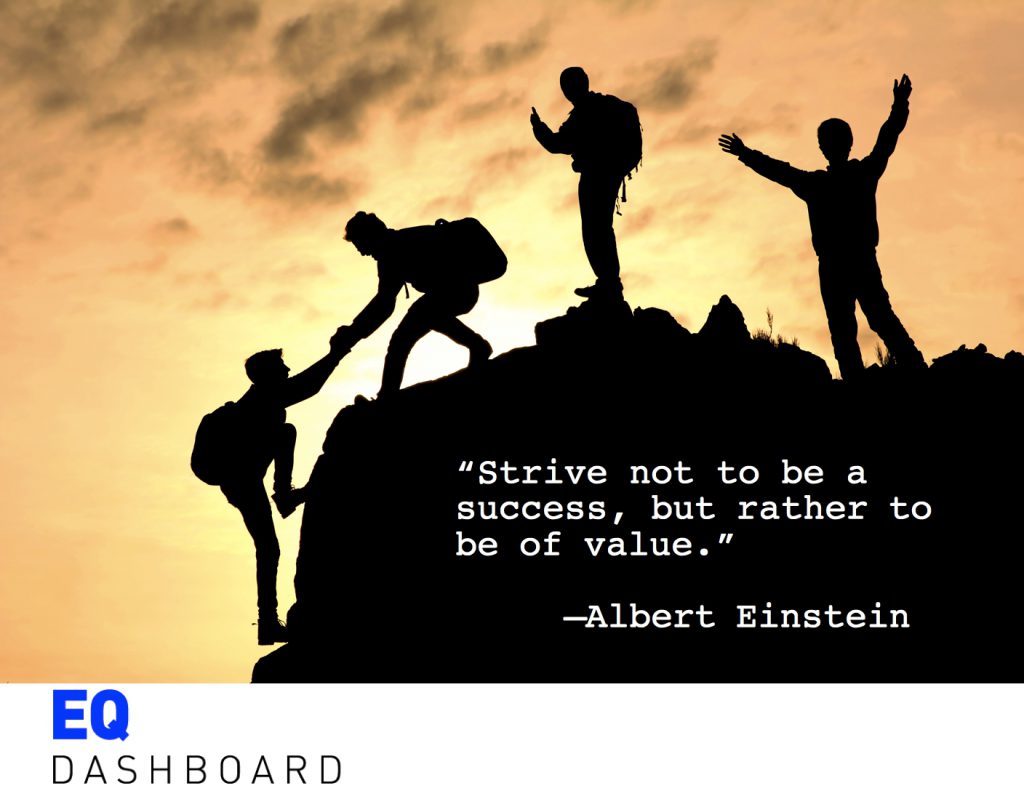What man actually needs is not a tensionless state but rather the striving and struggling for some goal worthy of him. What he needs is not the discharge of tension at any cost, but the call of a potential meaning waiting to be fulfilled by him.
— Victor FranklSelf-Actualization is pursuing activities that lead to a personally meaningful life; becoming more of your best self.
Abraham Maslow was the first to coin the phrase Self-Actualization, and his work has inspired many others to expand upon the subject. Management experts have borrowed from his writings to encourage organizations to create work environments that help their employees achieve in a personally meaningful way, meeting their own needs as well as the needs of the company. In recent years the Human Potential Movement has encouraged people to reach for the untapped potential within themselves and to help others achieve their potential. Such people are valued additions to any organization and contribute positively to their communities and families.
Self-Actualization is important in a discussion about emotional intelligence because the process of becoming self-actualized involves many of the qualities discussed in these materials. Self-actualized people are confident, they respect and get along well with others, they lack prejudice, they are open-minded and creative, and they have a passion for life. Two common characteristics of those on the pathway toward self-actualization are, first, their ability to be honest with themselves and to examine their personal motives, values and emotions and, second, their motivation to take action on their goals and desires. Achieving self-actualization means that you have identified your primary needs in life, that you have largely met them, and that now you are concentrating on what gives you joy and what ignites a passion within you to achieve and create at a higher level. And to do so helps to bring about positive changes in the world around you.
Self-Actualization can be learned, and developed by following the tips like these from EQDashboard.com.If you or someone with whom you work exhibit these behaviors, seeking the advice and tips at EQDashboard.com provides a quick remedy:
- Externally motivated, lacks personal convictions
- Acts more from fear of failure than a passionate desire to achieve or learn something new
- Overly conforming; needs to fit in
- Inertia, lack of energy, motivation or initiative
- Takes on the victim role
- Blames others for failures or disappointments
- Lack of self-confidence and self-regard
Action learning tips and learning assignments on the job are a click away at EQDashboard.com.
You might also consider (a sampling of suggestions from EQdashboard.com):
Covey, Stephen. Seven Habits of Highly Effective People. New York: Free Press, 1989, 2004.
Dalai Lama. The Art of Happiness. New York: Riverhead Books, 1998, 2009.
Hudson, Russ, and Don Riso. The Wisdom of the Enneagram. New York: Bantam, 1999.
Katie, Byron. Loving What Is: Four Questions That Can Change Your Life. Three Rivers Press, 2002.
Frankel, Victor. Man’s Search for Meaning. Boston: Beacon Press, 1959, 2006.
Maslow, Abraham H. “A Theory of Human Motivation.” Psychological Review. 1943, 50, 370-96.
Moss, Richard. The Mandala of Being: Discovering the Power of Awareness. New World Library, 2003.

Leave a Reply